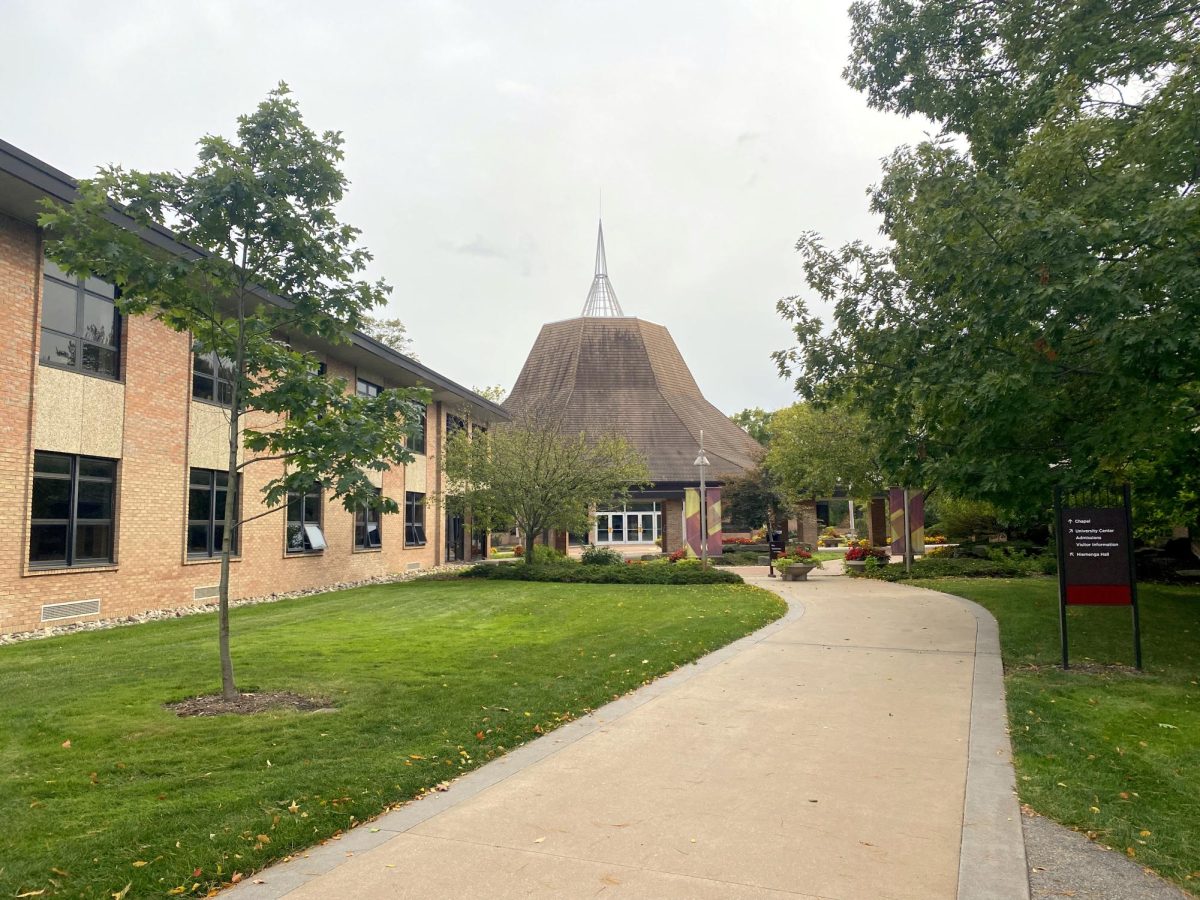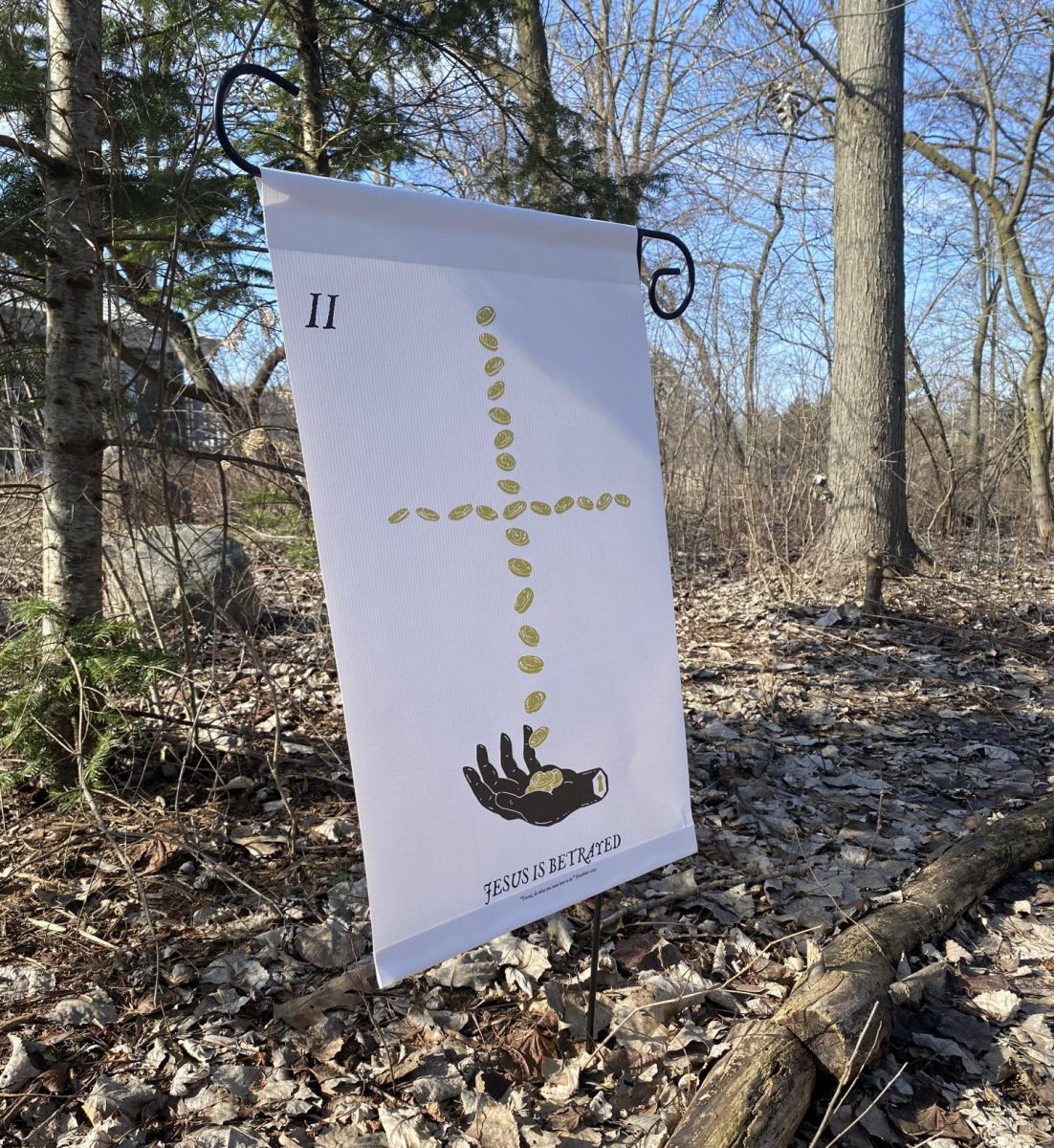A little more than three years have gone by since Calvin’s board of trustees approved the decision to allow Calvin professors to attend churches outside the Christian Reformed Church of North America (CRCNA), and Calvin faculty from non-Reformed backgrounds are finding that they are able to fit comfortably on Calvin’s staff as a result.
While older faculty policies required Calvin professors to attend a CRCNA-affiliated church and send their children to Christian schools, the new faculty policy focuses much more on theological commitments and confessions. “The confessions are actually much more hospitable for diverse faculty than the markers we used to insist on,” says Laura Smit, professor of religion.
Professors are still expected to teach from a Reformed perspective, but several professors Chimes spoke with said they find this easy to do even though they do not come from a Reformed background. Philosophy professor Kevin Timpe and religion professor Won Lee say that teaching at Calvin is like teaching with a “Reformed accent,” a phrase coined by Nicholas Wolterstorff.
Timpe, who grew up in the Church of the Nazarene — a Wesleyan denomination — and completed his doctorate at Saint Louis University, a Catholic institution, said that while not all of his views are typical of the Reformed tradition, the disposition of the college still allows him to practice his discipline honestly. For instance, he has some views on divine providence that “one would not normally think of as paradigmatic Reformed expressions of how to think about divine providence,” Timpe said. However, when teaching on divine providence in his classes, he feels very free to present his academic views as a way to explore the topic.
“I don’t see what I do in terms of teaching as trying to get my students to have a particular view. My job is not to tell them what to think, but to open them up to ideas…and it seems the Reformed accent of the college is a really forgiving environment in which to do that,” said Timpe.
De Vries Postdoctoral Teaching Fellow Tucker Adkins has also found that Calvin has been very accepting of his Anglican Church of North America (ACNA) background in the year that he has been at Calvin. His interview process, he said, did not involve explicit questions about whether or not he ascribed to the Reformed tradition or went to a CRCNA-affiliated church. Instead, he says he was asked more often about how he saw his faith intersecting with his academic work and his relationship with students. “Looking back…those are very Reformed questions to be asking,” he said, but the Reformed aspect of the college in the interview process was still implicit rather than explicit.
In addition to exposing students to a range of viewpoints, allowing non-CRCNA professors to work at Calvin gives professors an opportunity to understand their scholarship in a new and profound way. Smit told Chimes that she has seen this happen in her former role as dean of the chapel, which included working with faculty to integrate the Reformed vision into their classes.
Several years ago, as she was leading a study group of professors in understanding the Reformed doctrine of the bodily ascension of Christ, a music professor had a particularly memorable reconciliation of his theology and his scholarship. “I’ll never forget the enthusiasm of the music professor who said, ‘Wow, I’ve never thought about the fact that there is a human heart that is now beating in heaven, and that the music of heaven is to the rhythm of that human heart,’” said Smith.
Adkins, who said that he had never heard of the CRCNA before coming to Calvin, has also found that “intersecting ideas about vocation, calling, our faith being a part of our everyday lives” — a key aspect of Reformed theology — have changed the way he studies and teaches history.
“It’s not like it’s Tucker the Christian, Tucker the teacher, Tucker the husband, and so on and so forth…when I come to the classroom, being a follower of Christ matters and informs what I’m teaching…I don’t think I quite had the language to think or talk about that before I came here,” said Adkins.







